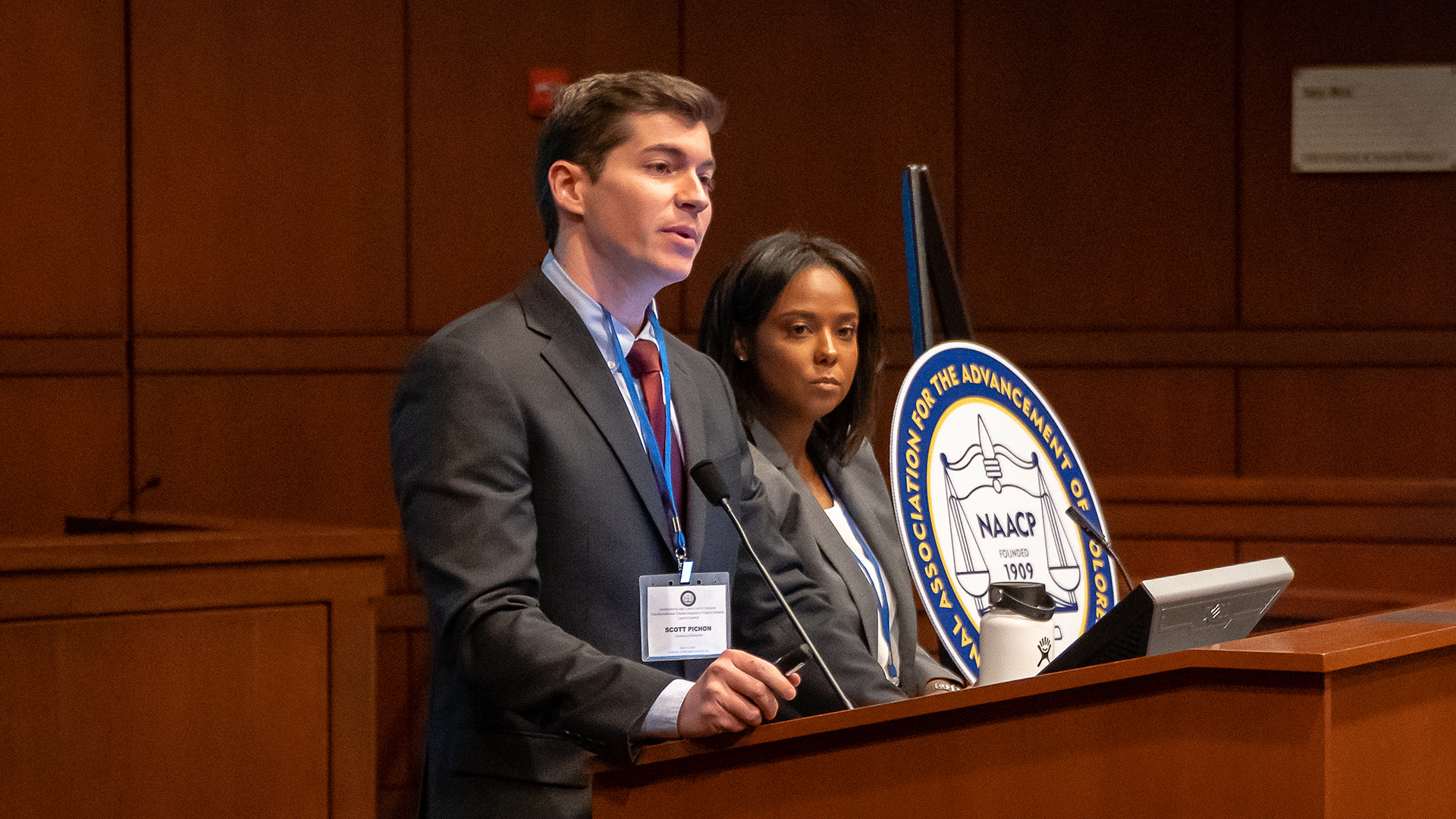On March 4, the University of Maryland Francis King Carey School of Law’s Environmental Law Clinic and Small Business & Community Equity Development (SBCED) Clinic hosted the NAACP’s Transformational Climate Adaptation Finance Initiative Launch Summit. The Summit launched an initiative by the NAACP to equip frontline communities with technical and financial resources for adapting to the impacts of climate change by building resilience to its adverse conditions such as extreme weather, sea level rise, and food and water insecurity.
The launch event drew many Maryland Carey Law faculty members and law students and several members of the NAACP’s Environment and Climate Justice Program. The launch event included several sessions focused on the current economic system in the context of climate change. Panels discussed how to advance reforms to existing policies and funding streams and how to spearhead transformational new economy policies. Other panels discussed the pros and cons of various financing mechanisms, models for inclusive climate action planning, and existing options for equitable climate adaptation financing.
Of particular note, the launch event previewed the upcoming “Transformational Climate Adaptation Finance Toolkit,” written by students in the Environmental Law and SBCED Clinics. During the launch event, two students from these clinics, Scott Pichon and Cymone Gosnell, presented the first and second modules of the upcoming toolkit. Students in both clinics will continue to work on the toolkit this semester and the NAACP will release the entire toolkit at the National Adaptation Forum in Madison, WI on April 23rd-25th.
Since becoming Director of the Environmental Law Clinic, Seema Kakade, has made it a priority to train students in the Clinic in a broad range of skills in both traditional and non-traditional legal forums. In addition to traditional litigation, the Clinic works on issues involving administrative law, international law, contracts law, and negotiations. The work on the toolkit represents an example of the type of transactional and finance law skills that are both valuable for students to possess and has the opportunity to improve outcomes for environmental and climate justice communities.

